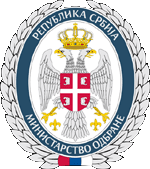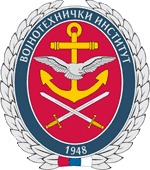|
REPUBLIC OF SERBIA MINISTRY OF DEFENCE
MINISTRY OF DEFENCE Material Resources Sector Defensive Technologies Department
|
COMPUTATIONAL ANALYSIS OF UNSTEADY AERODYNAMIC LOADS ACTING ON AN OSCILLATING WING IN TRANSONIC FLOW
Faculty of Mechanical Engineering, Department of Aeronautical Engineering, University of Belgrade, DRAGAN KOMAROV Faculty of Mechanical Engineering, Department of Aeronautical Engineering, University of Belgrade, SLOBODAN STUPAR Faculty of Mechanical Engineering, Department of Aeronautical Engineering, University of Belgrade, ZORANA POSTELJNIK Faculty of Mechanical Engineering, Department of Aeronautical Engineering, University of Belgrade, MARIJA STANOJEVIĆ Faculty of Mechanical Engineering, Department of Aeronautical Engineering, University of Belgrade,
Abstract: Transonic flow includes a number of unsteady fluid flow phenomena such as local separation regions, shock–boundary layer interaction, boundary layer transition and turbulence. In general, it is difficult to accurately simulate these phenomena since they require small length and time scales i.e. substantial computational resources. The principal goal of this study is to evaluate the capability and applicability of numerical simulations to predict the aerodynamic loads acting on a harmonically oscillating wing in transonic flow. Unsteady flow-fields around a three-dimensional oscillating half-wing model were computed using a finite-volume Navier-Stokes numerical scheme with several widely used turbulence models. The base geometry corresponds to ONERA M6 wing. The effects of grid-density were examined and presented. Numerical results from the stationary model were compared to available experimental data (AGARD-AR-138). The computations were performed at free stream Mach number of 0.84 at variable angle-of-attack. The effects of pitching angle amplitude and oscillation frequency were also investigated. Presented results include fluid flow visualizations in the form of Mach number and pressure contours and the values of aerodynamic coefficients. Keywords: oscillating wing, URANS, turbulence, aerodynamic coefficients, transonic flow.
|
|||||
|
||||||

